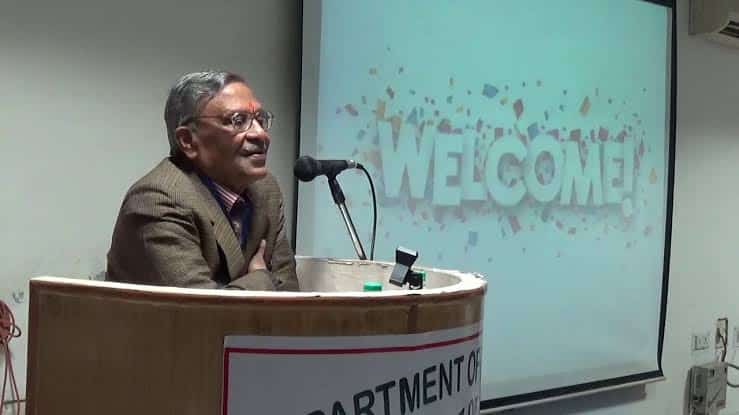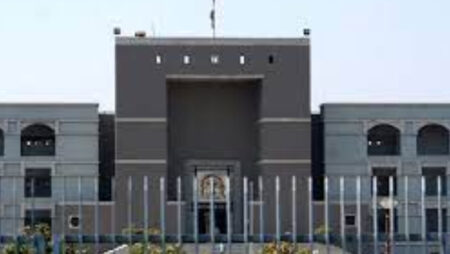The two-day conference is titled “Revisiting Psychology in Culture and Contexts: Looking Beyond Professor Durganand Sinha’s Academic Legacy.” The gathering will be at MNNIT in Allahabad, India.
This conference was jointly organised by the Allahabad University Psychology Alumni
Association, the Prof. Durganand Sinha Trust for Social Sciences, and the National Academy of Psychology.
Prof. RC Tripathi was the keynote speaker during Thursday’s opening session.During the opening session, Professor RC Tripathi, a famous psychologist and former director of the GB
Pant Social Science Institute, spoke at length on Professor Sinha’s academic journey and the many ground-breaking trends of indigenization and cross-cultural research that he initiated.
About MNNIT
Formerly known as Motilal Nehru Regional Engineering College (MNREC), the Motilal Nehru National Institute of Technology Allahabad (MNNIT or NIT Allahabad) is one of the 31 National Institutes of Technology and can be found in Allahabad (Prayagraj), Uttar Pradesh, India.
It is one among the top NITs in the country, and like the rest of them, categorised as an Institute of National Importance. It recorded the highest median wage package of all the NITs in the country in the year 2020, coming in at 11.59 lpa, making it the most in the country.
The undergraduate programme in Computer Science and Engineering was initially introduced at this college in 1976–1977, making it the pioneering institution in the United States to provide such a degree.
About Professor Durganand Sinha
Guru Durganand Sinha was a modern Indian psychologist. Born in a Bihar village on September 23, 1922, he earned an M.A. in philosophy and psychology from Patna University in 1945.
He earned his M.Sc. in psychology at Cambridge.
After returning from Cambridge in 1949, he joined the Patna University faculty before moving to IIT Kharagpur in 1959.
In 1961, he established a psychology department at Allahabad University, where he remained throughout his career, except for a few years in Patna (1982–1987) as director of the A. N. Sinha Institute of Social Studies.

For Indian psychologists, Durganand Sinha is a paradigm of how to do research that is both culturally sensitive and socially relevant while yet maintaining a high level of academic rigour despite working with minimal resources over the course of almost half a century.
He pioneered a new course for the study of psychology in India, trained at least three generations of psychologists to be leaders in their fields, and established the Department of Psychology at the University of Allahabad as a thriving hub for psychological research and education.
He represented Third World Psychology at countless developed-world international conferences and meetings.
About the international conference for psychologists (MNNIT)
A two-day international conference began on Thursday with the theme “Revisiting Psychology in Culture and Contexts: Looking Beyond Professor Durganand Sinha’s Academic Legacy.” The meeting will take place in Motilal Nehru National Institute of Technology’s (MNNIT) seminar room.
Prof. Janak Pandey, a prominent psychologist and former vice-chancellor of Central University of South Bihar, presided over the session and emphasised the need to move beyond the abstract nature of the knowledge systems of different cultures and establish empirically testable theoretical frameworks. He was the session’s chairperson.

Professors Anand Paranjpe of Simon Fraser University in Canada and Girishwar Mishra, a former vice-chancellor of Mahatma Gandhi Antarrashtriya Hindi Vishwa Vidyalaya in Wardha, spoke in the first thematic session, “Towards Indigenization of Psychology.” Each of these persons is highly esteemed in his own specialty.
Prof. Anand Paranjpe elaborated on the implementation and application of behavioural and humanistic theories in order to acquire a deeper knowledge of the relationship between yoga and behaviourism.
Prof. Mishra explored the indigenization of psychology’s origins and diverse perspectives. In addition, he praised Professor Sinha’s groundbreaking work in this field. Prof. Uichol Kim of Inha University, Korea, noted that the concept of the self varied considerably between civilizations.
Participants at the second meeting of this type explored psychological processes in relation to diverse cultural contexts.
Professor Lilavati Krishnan of the Indian Institute of Technology in Kanpur presided over this session, which comprised two speeches by Professors Ajit Mohanty and RC Mishra of the Banaras Hindu University in Varanasi.
Prof. Bhoomika Kar, who works at Allahabad University’s Centre of Behavioural and Cognitive Sciences, and Prof. Namita Pande, who also works at Allahabad University, participated in the discussion as members of an expert panel.













